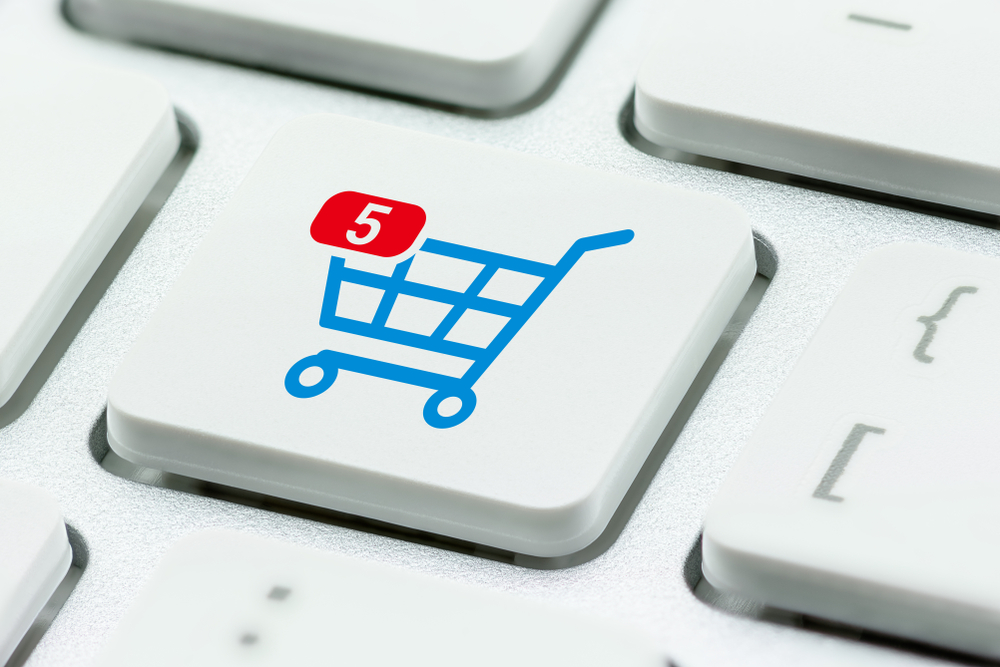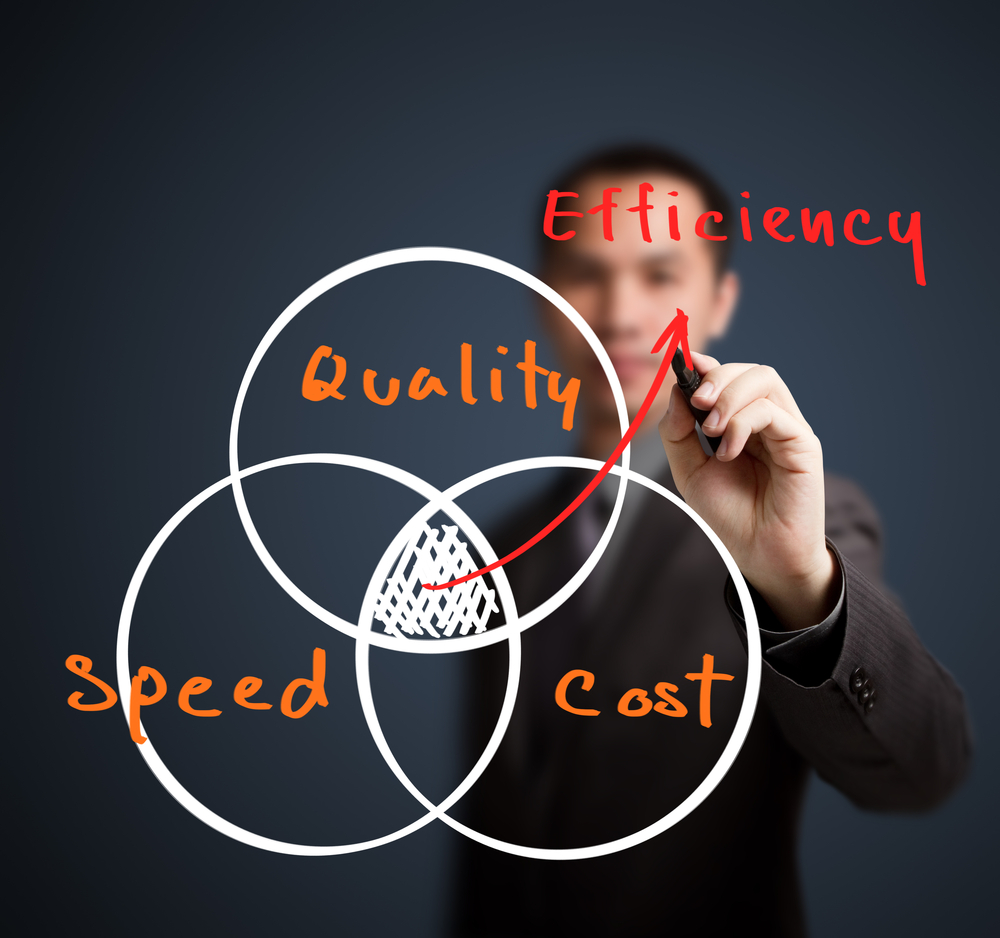
Manufacturers are always looking for ways to improve operations and provide better service to their customers. They often implement customer portals as a result. Customer portals help them streamline processes, enhance customer experiences, and improve satisfaction levels. However, manufacturers can integrate portals with their existing ERP system to add more value and boost operational efficiency.
Continue reading to learn about the different types of customer portals, how they integrate with ERP systems, and the benefits they bring. We’ll also review how customer portals reduce errors and improve data management when connected to ERP systems.
4 Customer Portals Manufacturers Use
Manufacturers use a variety of portal types to interact with their clients and partners. Each kind of gateway serves a unique purpose. Some facilitate sales and service, while others provide support or manage supply chain relationships. Let’s look at some common customer portal types and uses.
1. E-commerce Portals
E-commerce portals are secure online platforms designed to promote and sell products. These sites provide a seamless shopping experience for customers to browse products, place orders, and pay for them.
While simpler systems exist, most online ordering systems integrate with product configurators for more complex orders. This allows buyers to select from a variety of product options. For example, a customer can choose the material, color, size, backing density, and number of custom curtains to purchase. This is especially helpful for custom manufacturers who offer hundreds to thousands of options across their product lines.
With online shopping platforms, customers can easily find what they need and complete their purchases without any hassle.
2. Customer Service & Support Portals
Did you know that 100% of customers want to self-educate and manage their buying experience themselves? This is up from 87% in 2021, according to LifeRay.

While there are a variety of customer portal options, e-commerce, B2B, customer service/support, and dealer portals are the top choices for manufacturers.
Customer service portals, or client portals, are interfaces that allow customers to access a variety of services. Protected gateways give clients access to account information such as contact details, order status, shipment tracking, billing, and payments.
Many manufacturers also provide support services and helpful information to the public on their websites or e-commerce platforms. Virtual assistants, support requests, community forums, instructional materials, and videos are a few tools manufacturers use to assist their current and potential customers.
These applications ensure that customers receive timely and efficient support, which enhances their overall service experience with the company.
3. B2B Portals
B2B (Business-to-Business) portals are designed for interactions between companies. Considering the increased focus on supply chain transparency and efficiency, they are a vital resource for manufacturers. B2B customer portals streamline procurement, allowing manufacturers to place and reorder materials and view detailed cost breakdowns. This transparency aids in planning and budgeting, while also providing automated order processing, which reduces administrative burdens and enhances operational efficiency.
Custom product catalogs and pricing are also significant features for manufacturers and their clients. This enables sellers to offer differentiated product information and pricing tailored to individual clients or client segments. This personalized approach improves client relationships by providing custom pricing based on purchase history, volume, or contract terms.
Businesses can streamline their purchasing processes and enhance their client relationships through an effective B2B gateway.
4. Dealer Portals
Dealer portals are vital web-based platforms for manufacturers to improve their dealer management processes and boost sales. Through these specialized gateways, dealers can access manufacturer inventory information, generate quotations, place orders, and access marketing and educational materials. They also streamline communication between manufacturers and dealers, enhancing the ordering process and collaboration.
Real-time access to manufacturer information provides dealers with the tools needed to close deals faster and more effectively. This helps dealers provide better service to their customers by giving them the resources and support they need.
What is an ERP System?
An Enterprise Resource Planning (ERP) system is software that helps businesses manage their core processes. These often include finance, inventory management, procurement, and production. ERPs integrate all these processes into a single source of truth. By eliminating data silos, ERPs help improve efficiency and data accuracy across the organization.
An organization can implement an ERP system on-site, in the cloud, or as a hybrid. Cloud ERP solutions offer several benefits, including scalability, accessibility, and cost-effectiveness. They are hosted on remote servers and accessed online. This allows businesses to scale their operations without needing additional hardware.
ERP systems can connect with a variety of customer portals no matter where the system resides. Plus, integration ensures that all data is accurate and up-to-date, reducing the risk of errors and improving efficiency.
Connecting ERP and Customer Portals for the Biggest Benefits
ERP system integration with customer portals provides numerous benefits for all types of manufacturers. This connection enhances data accuracy, improves customer experience, and boosts overall operational efficiency. Here’s how linking your manufacturing ERP to customer portals can transform your business.
1. Improved Data Accuracy
You can rest assured that all your data is accurate and up-to-date when your ERP and customer portals are integrated. Integration eliminates manual data entry, reducing the chance of errors. It also allows your team members to spend time on more value-added projects.
Integration ensures that you aren’t selling items without inventory or estimating delivery dates you cannot meet. No company wants to provide outdated information during a support session. How embarrassing! They also don’t want to hear a customer complain about their address being incorrect after changing it multiple times.
Data accuracy can make or break a customer relationship. Why take that chance?
2. Enhanced Client Experience
Integrating ERP systems with customer portals significantly enhances the customer experience by streamlining and personalizing interactions. Faster order processing ensures timely deliveries and real-time updates keep customers in the know. Integration also allows field service and support teams to access comprehensive customer information quickly, resulting in more accurate assistance and faster resolution of issues. These improvements collectively lead to higher customer satisfaction and loyalty which help your bottom line.

Improve the client experience and increase operational efficiency with automated processes and instant data transfers with ERP customer portal integration.
Moreover, ERP customer portal integration streamlines billing and payment processes, ensuring accuracy and efficiency. Customers can view their billing history, download invoices, and make payments directly through the portal, reducing errors. Clients can also receive order and promotion details through automated notifications, while user-friendly, self-service options empower them to manage their interactions.
This transparency and convenience reduce customer anxiety and build trust, ultimately driving repeat business.
3. Greater Operational Efficiency
Customer portals with integrated ERP data drive operational efficiency by automating and streamlining workflows. When customer portal data automatically updates the ERP, employees won’t need to manually transfer information between systems. This speeds up processes like order fulfillment, inventory management, and invoicing and reduces the risk of human errors.
Furthermore, ERP integration enhances visibility and control over operations, leading to more informed decision-making and better resource management. Real-time data synchronization provides you with a holistic view of the business. This enables managers to monitor performance metrics, track inventory levels, and forecast demand with greater accuracy.
The centralized database makes sure that everyone has the most current information, from sales to supply chain management. This enhances collaboration and reduces delays. Overall, the seamless integration of ERP systems with customer portals fosters a more agile, responsive, and efficient operating environment.
4. Better Decision-Making
When ERP systems and customer portals are integrated, it provides access to real-time data and comprehensive analytics. Decision-makers can easily analyze trends and patterns in customer data, order histories, inventory levels, and financial information. This visibility allows you to respond quickly to changes in demand, identify opportunities for upselling, and optimize inventory levels. This enables you to make strategic decisions that enhance efficiency, reduce costs, and improve overall profitability.
Real-time data integration between systems also enhances forecasting and planning capabilities. Sales data, customer preferences, and market conditions help you predict future demand and adjust strategies more accurately. For instance, a manufacturer can plan production schedules, allocate resources effectively, and manage supply chain logistics more efficiently.
The ability to generate detailed reports and performance metrics helps in setting realistic goals and measuring progress. This data-driven approach ensures that decisions are based on reliable information, leading to better outcomes and a more competitive edge in the market.
Customer Portal Data Transfers
Data quality is crucial for manufacturers. Therefore, accurate data transfer between portals and ERP systems is vital. Several options are available to ensure seamless data flow and integration. Let’s explore some common methods used to transfer data from customer portals to ERP systems.
APIs (Application Programming Interfaces): APIs allow different software systems to communicate with each other. They enable seamless data exchange between customer portals and ERP systems, ensuring real-time updates and automation. Using APIs, you can integrate your systems more efficiently and improve data accuracy.
EDI (Electronic Data Interchange): EDI is a standardized format for data transfer between systems. It is commonly used for large-volume transactions, such as orders and invoices. EDI helps streamline your processes and reduce the risk of errors associated with manual data entry.
Manual Data Import/Export: For systems that do not support automated integrations, businesses can use manual data import/export methods. While less efficient than automated options, this approach is necessary for some smaller operations. However, you run the risk of errors and interchange problems.
Frontier Portal Integration for Operational Efficiency
Manufacturers that choose to integrate Frontier ERP with their customer portals realize many benefits. Frontier offers a range of features designed to enhance your customer portals and increase operational efficiency. These features focus on usability, data management, and automation to streamline business processes. Let’s take a closer look at what Frontier ERP customer portal integration can do for your business.
• User-Friendly Interface
Integrated Frontier ERP customer portals feature an intuitive design that makes navigation easy for both customers and staff. A user-friendly interface ensures that users can quickly find the information they need and complete their tasks efficiently.
• Secure Data Transfer

You can count on data security and accuracy when integrating your customer portals with Frontier ERP.
Ensuring data integrity and security during transfers is a top priority for Frontier ERP. Frontier’s eWebServices and DataBroker use strong security measures to transfer data between systems and protect it safely. While API and EDI services are available, eQuote Dealer is a full-service dealer portal that takes sales and dealer management to the next level.
• Customizable Dashboards
Customer portals integrated with Frontier can have customizable dashboards tailored to different user roles and requirements. This allows users to access the most relevant information and tools for their needs, improving overall productivity.
• Real-Time Analytics
Access to real-time analytics is a key feature of Frontier ERP customer portals. Manufacturers can use this data to make quick, informed decisions, identify trends, and improve operations. Real-time analytics allow you to be more responsive to changing market conditions.
• Advanced Product Configuration
Frontier ERP’s advanced product configuration capabilities streamline the customization process when integrated with customer portals. This real-time data exchange ensures that customer preferences are accurately captured and instantly updated in the ERP system, reducing errors and production delays. Consequently, integration speeds up order processing and ensures timely deliveries.
• Automated Order Processing
Frontier ERP customer portal integration streamlines the order-to-cash cycle by automating order processing. This reduces processing time and ensures that orders are fulfilled accurately and efficiently. Automated order processing helps you improve customer satisfaction and reduce operational costs.
• Integration Capabilities
Integrated Frontier ERP customer portals are designed to easily connect with various other business systems. This flexibility lets you combine current systems and improve processes while ensuring your data is safe and correct. Plus, you can use your own, custom-branded online system with Frontier ERP running in the backend!
Would you like more information on how Frontier ERP can integrate with your customer portals? Contact us today to see a demo!
Conclusion
Integrated ERP systems and customer portals provide manufacturers with the efficiency they seek. Automated processes, from order placement to customer support, result in significant time savings and improved data accuracy. By leveraging different types of portals, manufacturers can provide seamless experiences for their customers and partners.
The benefits of ERP-integrated customer portals extend beyond operational improvements. They ensure real-time data synchronization, enhance decision-making, and foster better customer relationships. These integrations allow manufacturers to focus on strategic development and innovation for business growth.



